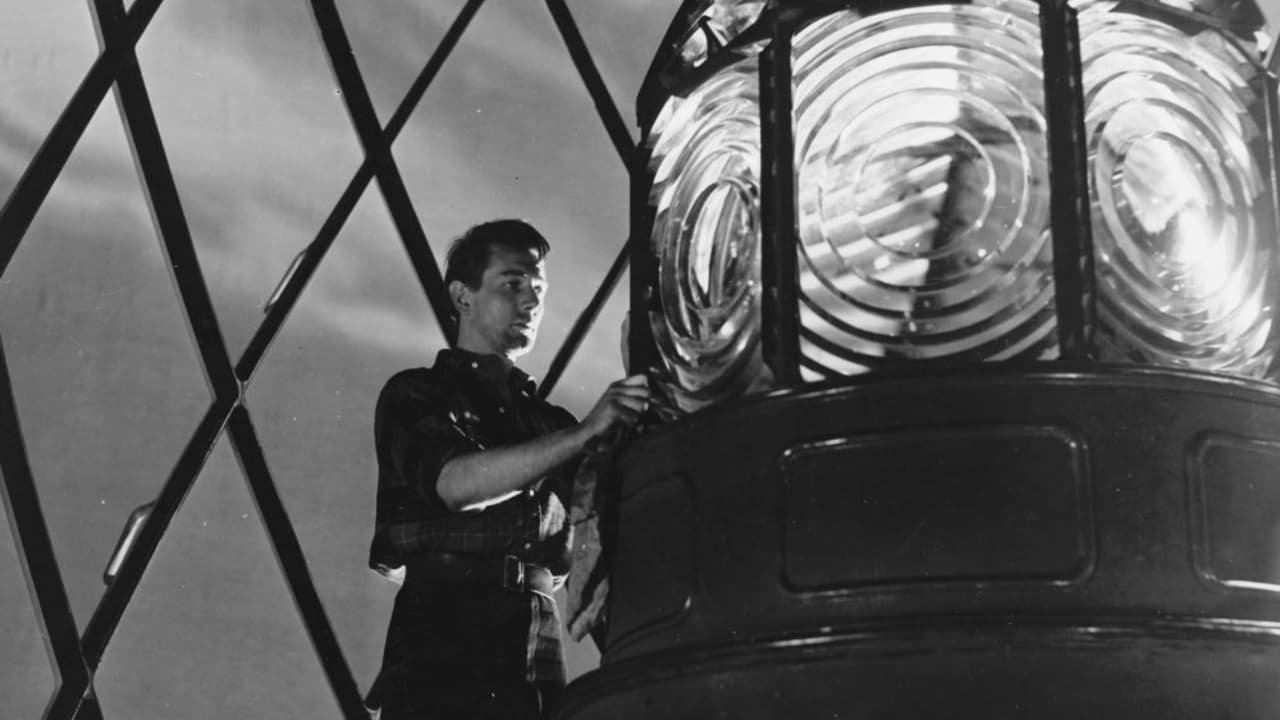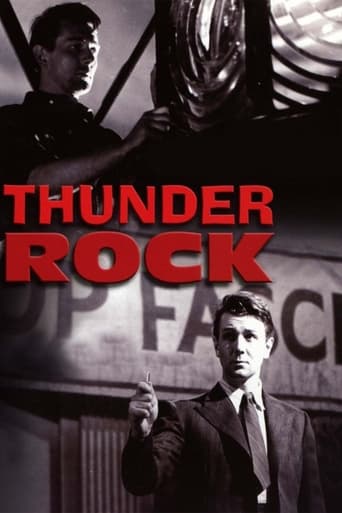Lovesusti
The Worst Film Ever
TrueHello
Fun premise, good actors, bad writing. This film seemed to have potential at the beginning but it quickly devolves into a trite action film. Ultimately it's very boring.
Robert Joyner
The plot isn't so bad, but the pace of storytelling is too slow which makes people bored. Certain moments are so obvious and unnecessary for the main plot. I would've fast-forwarded those moments if it was an online streaming. The ending looks like implying a sequel, not sure if this movie will get one
Freeman
This film is so real. It treats its characters with so much care and sensitivity.
howardmorley
All the reviewers who wished they could see this film again (some of whom saw it originally in 1942!), can now see it again if they are resident British and subscribe to Freeview tv on Channel 81 It is shown regularly on this wonderful channel which I constantly watch if you can put up with the adverts which finances it, as it saves paying for numerous dvds which I used to do before I discovered this tv station.For example, every Sunday @ 9.p.m. GMT they are repeating the wonderful mid 60s episodes of "The Human Jungle" starring Herbert Lom which I originally saw when it was transmitted (I am now 72).Some reviewers thought Thunder Rock was too stagey.Does it matter? I saw the classic R.C.Sherriff's "Journey's End" on Youtube the other day which of course is based on his play.What if Michael Redgrave is a bit declamatory at times, he was an accomplished stage actor first.In 1942 Britain was in a precarious position so of course the Government sought propaganda films to help morale & the war effort.See this film on the aforesaid channel, the tv station is bound to repeat it occasionally.
blanche-2
Based on a play, "Thunder Rock" is a 1942 film that follows the fascination with ghosts that seems prevalent at the time, just as it is prevalent in ours. There was "Between Two Worlds," which was the remake of "Outward Bound," "The Ghost and Mrs. Muir," "Heaven Can Wait," "Here Comes Mr. Jordan," - etc.! I won't go into the angels - "It's a Wonderful Life," "The Bishop's Wife," etc. The war caused people to think about death and the afterlife a great deal."Thunder Rock" is about a newspaperman David Charleston, (Michael Redgrave) who saw the rise of Fascism and Nazism and tried to warn people to wake up and take action. Unfortunately, his editors wouldn't allow the doom and gloom. His response is to give up and take a job as a lighthouse keeper on Thunder Rock in Lake Michigan. There, he becomes interested in a ship's log of a ship that went down 90 years earlier. He begins to have conversations with them in his mind. None of the passengers know they're dead except for the captain (Finlay Currie). He shows David how each of these people came to be on the ship. There's a doctor driven out of Vienna for using an early form of anesthesia (Frederick Valk), an early feminist (Beverly Mullen) jailed repeatedly for her views, a man and his wife en route to America to try for a better life for their family.There are several themes present in this film - the themes of keeping hope, not giving up one's quest, and affirming life, certainly important ideas in a time of war. There's also the theme of reincarnation, as one of these people could have been Charleston. In the beginning of the film, there is the communication of information from one person to another to another to another, as knowledge is passed through generations.Redgrave is excellent, as are Finlay Currie, Beverly Mullen, James Mason (as David's friend) and a young Lili Palmer as the doctor's daughter. In fact, the whole cast is good, including a young Barry Morse in his pre-"The Fugitive" days, as the ex-fiancée of Beverly Mullen.Beautifully photographed and thought-provoking.
whpratt1
Enjoyed this film from 1942 which I have never seen over the years and it captured my attention from the beginning to the very end. It concerns an anti-fascist journalist named David Charleston, (Michael Redgrave) who is a reporter for a newspaper in Canada and he has traveled in Europe and has discovered that Hitler is starting trouble in Germany and there is reason to believe that Japan is also starting problems in China. David has great insight and tries to tell the English people about the threat of Hitler's Germany and to prepare for war in the early 1930's. David writes many books trying to tell the world that they are in big trouble and then decides to retire to a lighthouse in Michigan on the Great Lakes. A good friend of David, named Streeter, (James Mason) visits David at the lighthouse and wants to find out why David never cashes his pay checks for months. Streeter gets upset with the way that David is acting and finds out that he is communicating with dead people that had a shipwreck ninety years ago in the great lakes and in his own mind they are alive and talking to him. These people were European immigrants who wanted to come to America and at the lighthouse there is a Commemorative Tablet speaking about this shipwrecked crew members. This is a very deep and wonderful film with a great story to tell.
Malc-13
That this story is an allegory is clear from very early on but the director seems to have wanted to disguise it somehow with unnecessary padding. In doing so he detracts from the overall message and loses his audience a little along the way. Take the opening scenes as an example where a phone call is passed higher and higher through a chain of employees. It's well played, well acted and amusing and of absolutely no relevence whatsoever to the plot. You may as well have had a Donald Duck Cartoon instead and started the film where James Mason lands at the lighthouse.It achieves some great moments both in and out of it's lighthouse setting, Michael Redgrave is very good but everything just goes on that little bit too long for it's own good.James Mason stardom puts him near the top of the billing, but he's really only a bit player in this and doesn't make any significant contribution to the overall film.

